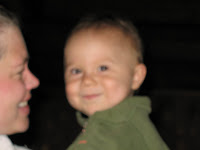When civil unrest comes to a small Solomon Island and all the white people who were running the government, schools, and copper mine, abandon the indigenous people and flee to higher ground. Without a proper teacher, the children, including the narrator of Lloyd Jones’s excellent and Booker short-listed Mister Pip, Matilda, among them, run wild. With no lessons, their days stretch out in front of them like a million Sundays, until finally Matilda’s mother announces that the island’s one remaining white man, Mr. Watts, will begin to lead the lessons.
With no curriculum to guide him, Mr. Watts reads aloud from the Charles Dickens classic, Great Expectations. Immediately, Matilda is hooked, on Mr. Dickens as Mr. Watts refers to him, on Pip’s journey, on the sheer impact the words have upon her life. As they make their way through the story, life continues around them, the fighting between the island’s guerrilla forces and the army carries on, and the violence escalates. The impact of the war on the people can be seen in the obvious ways: some are killed, their homes are burned, but as the novel moves to its tragic and heartbreaking penultimate moments, their human strength remains fortified.
Matlida’s special relationship to Mr. Watts comes out as well—they have an obvious connection, not just in their mutual love and admiration for Mr. Dickens and for Pip, but in their faithful need to love and respect the fact that words can sometimes make all the difference to a life. In a sense, words themselves represent a kind of power in this novel, whether they’re from the Bible or the novel, they are literal objects that can change your life.
The main conflict within the novel, outside of the obvious physical violence, is generational, between Matilda and her mother. With her father having escaped to the mainland years before and turning into a ‘white’ man, Matilda and her mother scrape by together. As she falls deeper and deeper under the spell of the imaginary Pip, Matilda and her mother move further and further away from an understanding of one another. It’s not an unfamiliar theme, any daughter of a mother will know it intimately, yet with the added layer of the civil war, their petty arguments and fundamental differences run a course that will ultimately have an deep effect upon both of their lives.
I read much of this book in an airport and on a plane; two times where despite being surrounded by people, I felt incredibly lonely and alienated. In this sense, it was a perfect book for that moment in my life, uplifting and generous, lovely and tragic, heartbreaking and momentous. The ending sucks the breath right out of your body (in a good way) and it’s one of those books that just stays with you for hours, days, months, years, after you’ve finished reading.
READING CHALLENGE ASIDE:Mister Pip now graces my Around the World in 52 Books challenge, as I didn’t have an author from New Zealand on the list, and I certainly have never read another novel set in the Solomon Islands. The setting is crucial, and if I were teaching post-colonial literature, I would absolutely insist this novel be on any course list. And I think if pushed, I could probably write one hell of a paper comparing this novel to Jean Rhys’s Wide Sargasso Sea.




